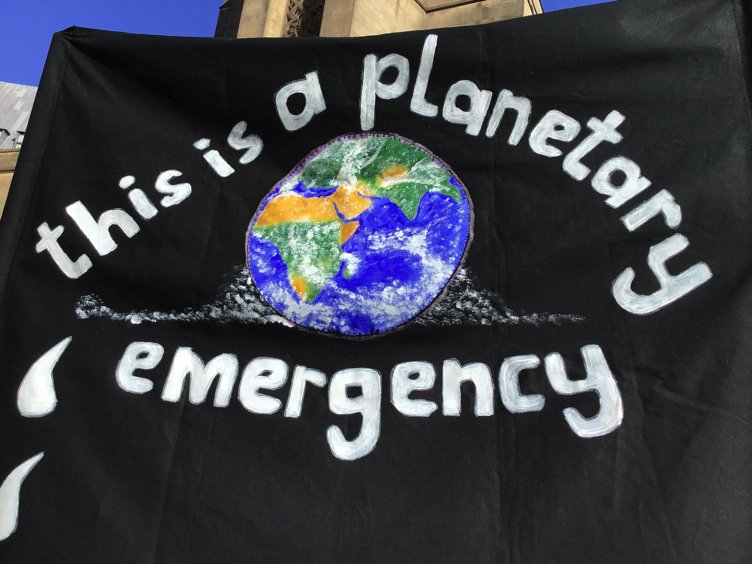Engaging young people in climate action
Manchester Climate Change Youth Board, Manchester Climate Change Agency
Climate change poses an immense global challenge. But it is one that will touch the lives of people living, working, and playing in the streets of our city.
Local action and community engagement are vital if we are to play our part both in mitigating climate change, and in living with the consequences of climate change.
Young people, those that will need to deal with the most acute implications of climate change in the future, are vital to this local action.
Why Collaboration with Young People Matters
Image reproduced with permission, Dr Ben Bowman
Young people are at the forefront of action on climate change at global and local levels.
Yet groups that mobilise for climate action rarely make the most of the young people in their communities. This is a huge problem because young people are not just ‘future people’ who will inherit our cities: they are people now, they share our communities now, and they must survive the impact of climate change in the here and now, as well as the impact of climate change in the future.
Young people need power
Young people need more than a voice. They need power, and that means effective power to make decisions and influence change.
A major limitation on young people’s ability to take action in democratic structures, including climate adaptation and resilience activities, and other decision-making bodies, is that those structures are adult-led and adult-centred and they exclude young people.
If exclusive structures cannot be changed – or at least not fully changed – then young people can be supported with opportunities to practice and develop the skills to meaningfully participate. For instance, in a local council setting, the rules of keeping order in the meeting may be ill suited to young people at first, but by taking care to learn and practice ways to participate, young people can be included in such meetings on an equal basis.
Three principles for empowering young people and children in climate action
Children and young people are people, and so they are a resource. Democracy means we can benefit from them. By involving children and teenagers you gain their experience, their knowledge and their expertise. You also include, rather than exclude, a group of people who will be directly affected by the decisions you’re making. At the very least, the decision to exclude young people needs to have solid grounds.
If you involve children and young people, you give them practice in being empowered citizens. This practice will pay off in the long run (and helps them, too!) Citizens themselves get practice in democratic processes so that down the line you get a stronger participation and an empowered and supported citizenry.
Including young people in the decision-making will help include them in the policy when it’s implemented, too. They’re also involved in wider democracy in their community. Citizens who are involved are more active participants in the decision implementation: this goes for young people too.
Image reproduced with permission, Dr Ben Bowman



